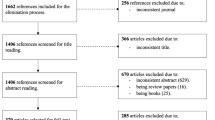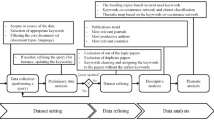
Overview
- Develops theory based on studies of ‘old’ and well established hybrid organizational and forms
- Includes multidisciplinary perspectives from scholars in management, organization studies, social anthropology, economic history, sociology and political science
- Sets out the future research agenda for this growing topic of study
Access this book
Tax calculation will be finalised at checkout
Other ways to access
About this book
A much-needed addition to literature, this timely edited collection aims to provide clarity and understanding on how modern organizations work. The authors explore the characteristics of hybrid organizations in contemporary society, taking into account the complex societal challenges that face businesses today. Arguing that hybrid organizations are in fact not a new phenomenon, this thought-provoking collection goes beyond existing research and re-evaluates our traditional understanding of this concept. Scholars of organization, management and innovation will find this book an insightful read, as it sheds light on the fundamental aspects that shape today’s hybrid organizations.
Similar content being viewed by others
Keywords
Table of contents (17 chapters)
-
Front Matter
-
Back Matter
Editors and Affiliations
About the editors
Staffan Furusten is Associate Professor of Management and Director in the Stockholm Centre for Organizational Research at Stockholm University, Sweden.
Bibliographic Information
Book Title: Managing Hybrid Organizations
Book Subtitle: Governance, Professionalism and Regulation
Editors: Susanna Alexius, Staffan Furusten
DOI: https://doi.org/10.1007/978-3-319-95486-8
Publisher: Palgrave Macmillan Cham
eBook Packages: Business and Management, Business and Management (R0)
Copyright Information: The Editor(s) (if applicable) and The Author(s) 2019
Hardcover ISBN: 978-3-319-95485-1Published: 17 December 2018
eBook ISBN: 978-3-319-95486-8Published: 05 December 2018
Edition Number: 1
Number of Pages: XIX, 364
Number of Illustrations: 3 b/w illustrations
Topics: Organization, Organizational Studies, Economic Sociology, Business Strategy/Leadership, Enterprise Architecture, Innovation/Technology Management



